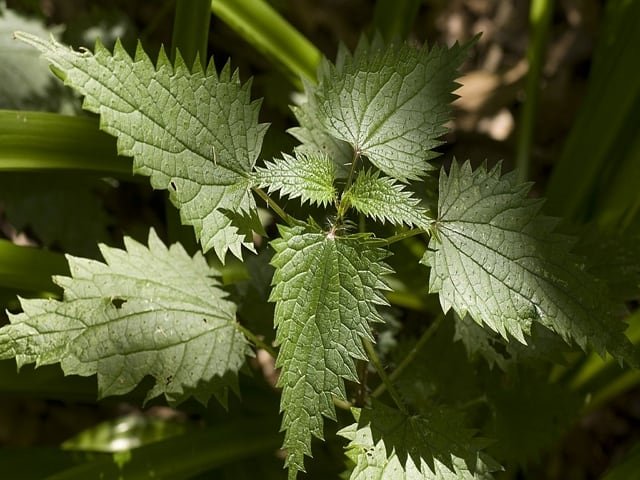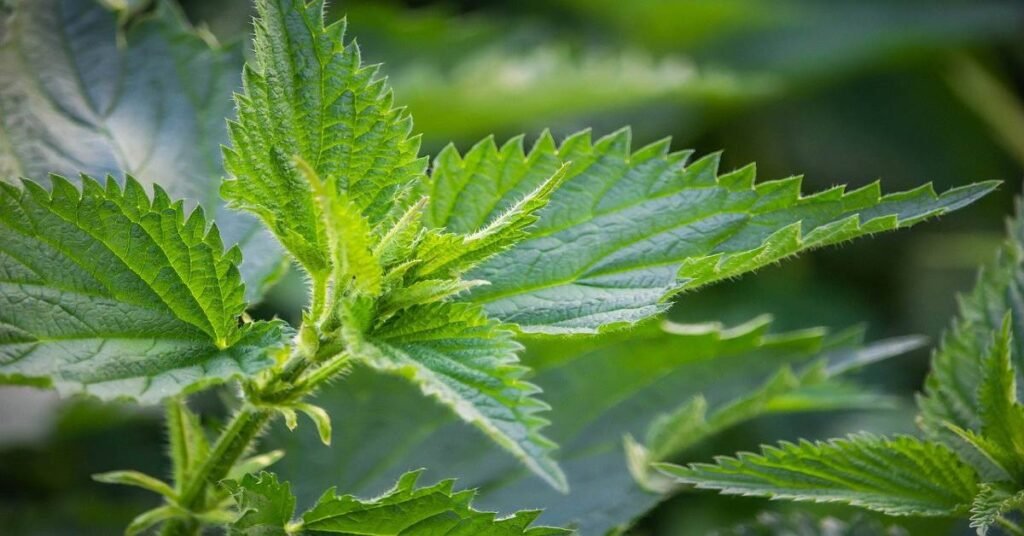Stinging Nettle/Kandali- An Extraordinary Plant. Stinging nettle is a common plant that grows worldwide but is more common in Europe, Canada, North Africa, and some parts of Asia. Kandali plant is known for its stingy leaves and stems, the reason being the leaves and stems of Stinging nettle bear many tiny stinging hairs. This blog is going to be about Stinging nettle, its uses, benefits, and side effects.
Stinging nettle in Hindi is Bichhu buti and is known as Kandali plant in Uttarakhand. This herbaceous plant grows up to 1-2 m tall. It prefers moisture areas with open or partly shady, and you can find them in forests, riversides, and roadsides.
The tiny needle-like hairs present in the leaves and stem of the Common nettle produce an itching sensation and swelling. The reason behind it is its stinging hairs act as needles and inject histamine and other chemicals into your skin. In Uttarakhand, the Kandali plant is used for giving punishing naughty children.
Nutritionally, the Kandali plant is very rich as it contains Vitamins (Vitamin C, Vitamin B2, Vitamin K1, and Vitamin E), Minerals (Calcium, iron, magnesium, phosphorus, potassium, and sodium), amino acids, polyphenols, and pigments. It gets used in traditional medicines, food, tea, and hair and skin product since ancient times.
Stinging Nettle Uses

Stinging nettle is an extraordinary plant with multiple uses, some we have mentioned below:
- Since ancient times, the Kandali plant is in use as a medicinal herb. Different parts of this plant are used for treating different health issues like hay fever, diabetes, Osteoarthritis, benign prostatic hyperplasia (prostate enlargement), and other urinary disorders.
- Also, topicals cream are developing from the Common nettle plant for treating joint pain and various skin problems, like eczema and dandruff.
- You can use this plant for eating purposes as well, as it is a rich source of vitamins, iron, potassium, magnesium, and calcium. You can cook the young leaves of the Kandali plant and eat them as a vegetable. Kandali saag is a very famous recipe of Uttarakhand.
- Additionally, it is also has used in beverages drink. Young nettles are in use for making alcoholic beer.
- Last but not least, stems of the Kandali plant contain a bast fiber, a textile raw material.
Stinging Nettle Benefits
Talking about the Stinging nettle benefits, below we have covered the health benefits of Common nettle:
- Stinging nettle helps in providing relief from arthritis symptoms. It helps your body reduce inflammation, improves osteoarthritis pain, and relieves gout.
- It helps to treat benign prostatic hyperplasia in which the prostate gland gets enlarged. The enlarged prostate gland causes discomfort during urination. This plant may help you slow down prostate growth by making hormonal changes in people with this health issue.
- This plant is effective in providing relief from hay fever. Hay fever is a type of allergy that affects the nose lining.
- Consuming Kandali plant leaves helps to reduce blood sugar levels, which makes them useful in the treatment of diabetes.
Stinging Nettle Side Effects
Generally, it is safe to consume stinging nettle but, you should take proper care while handling this plant as it can cause skin irritation, burning sensation, redness, and swelling. These reactions are due to histamine and other chemicals injected into your skin by its tiny stinking hair present in its leaves and stem.
However, cooking and processing remove these chemicals, making them safe for consumption.
Conclusion
Stinging nettle or Kandali is a common plant with multiple uses and health benefits. We hope our blog made you aware of these important features of this plant. You can order nettle tea leaves online on Amazon through the link given below:
If you have any queries, please drop us a comment in the comment section.
Recommended Reading:

